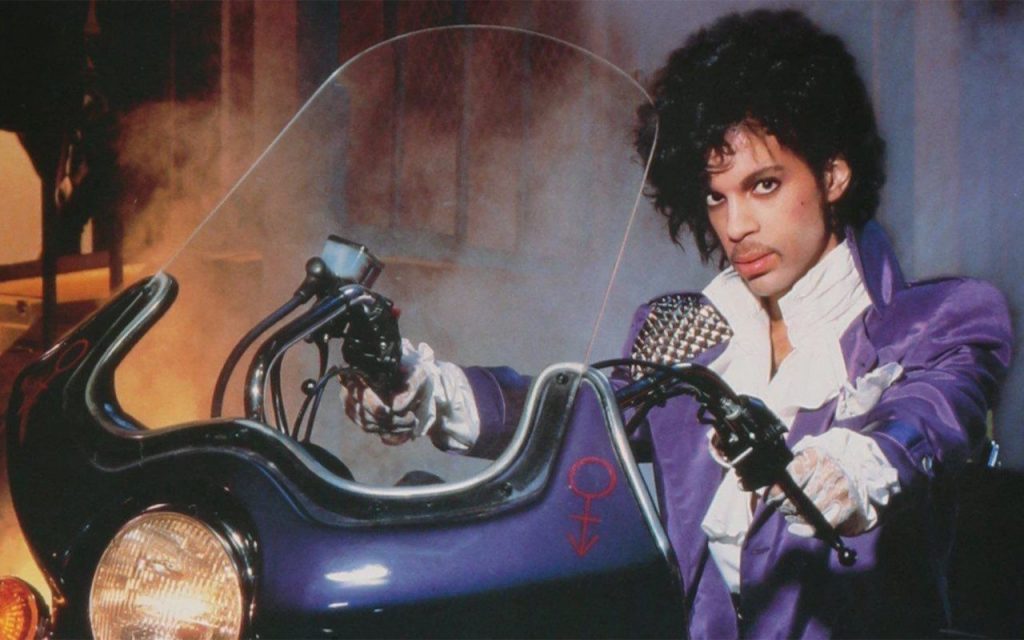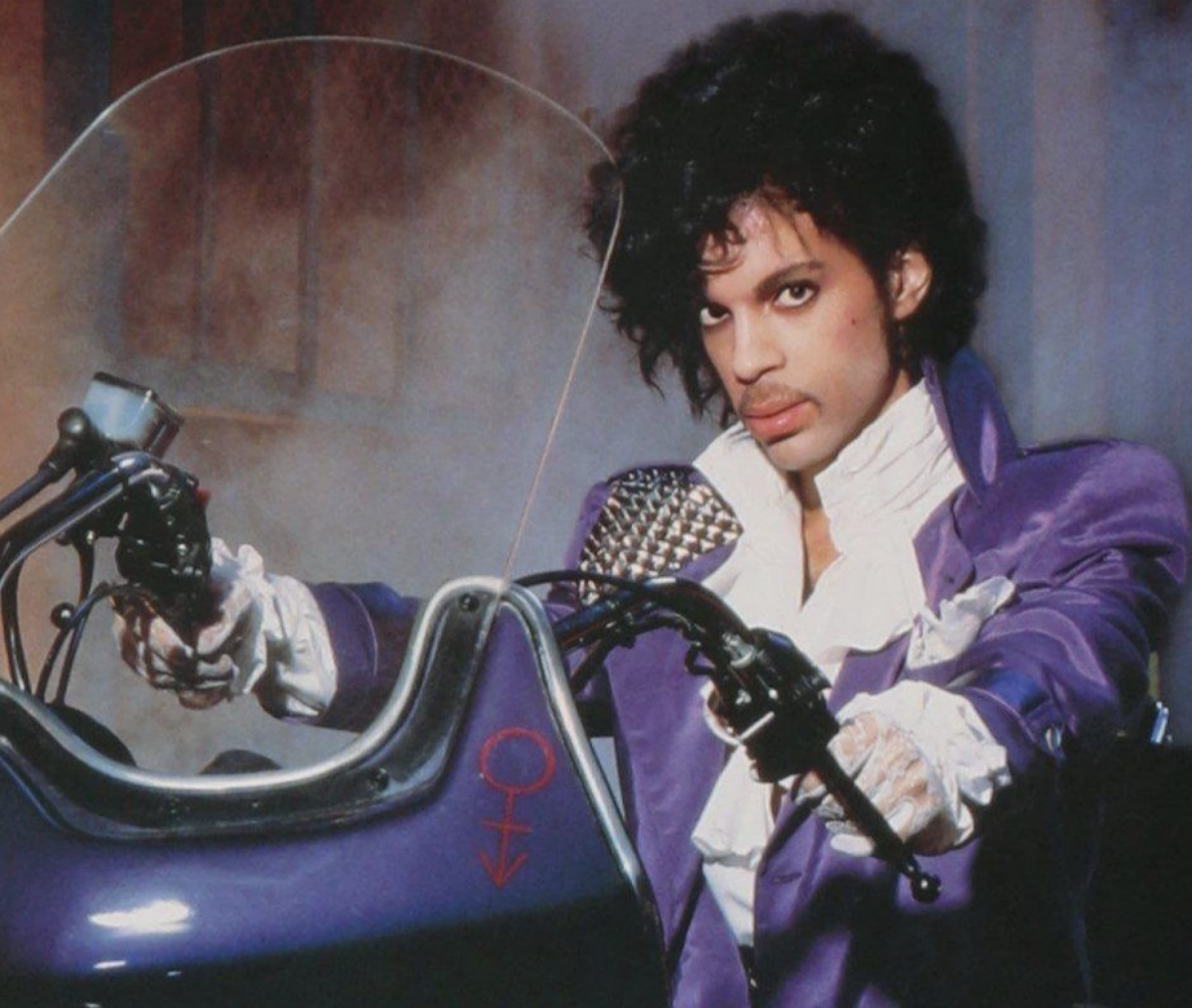
I can recall a time when my Prince albums weren’t safe to leave lying around the house.
As a teenager—having moved from the endless possibilities of a city like L.A. to the small-town realities of a rural town in Oregon—I worshipped at the altar of Prince Rogers Nelson, mostly for everything that made my parents dislike him.
Dude was just different—take a look at the Dirty Mind album cover and then tell me that not only did he stand out from everything else going on in pop music around him, but that there wasn’t also some excellent punk-rock shock value in having a five-foot-two guy in fishnet stockings staring back at you from a record that featured lewd and lascivious titles such as “Dirty Mind” and “Head”?
He was badass; he was a musical savant; he could play every instrument in every style (even ones you’d never heard of before) better than you, or the best player you knew of; he could sing/dance/entertain; he could write circles around his contemporaries (in fact, wrote hits for artists ranging from Sheena Easton and Cyndi Lauper to the Time and the Bangles). He dated everyone in sight. Created stars of lesser talents. Had the most diverse, crazily composed band (the Revolution) in pop—a keyboard-pounding Doctor? Seriously? And mostly, made it totally OK to be an outsider, different, weird. In fact, Prince made it cool to be willfully eccentric.
I will absolutely never forget the first time I saw Purple Rain. I was back home in Long Beach, Calif., and went to a local theater there with some friends—and was treated to lines around the block, about two dozen different guys in Prince hairdos with purple trenchcoats on, and an audience that shouted back at him, recited the lines as if they were auditioning for roles in the film and had the best time of their young lives laughing, crying and generally carrying on as if Prince was there performing live in theater with us.
It was a community of self-identified weirdos, freaks and music geeks. Who would turn out to be my people for life.
Others will no doubt write tributes that attempt to capture his vast cultural influence (you can’t get to Afghan Whigs, Outkast, D’Angelo or even Kendrick without first detouring through Paisley Park), bemoan the fact that it took the Rock And Roll Hall Of Fame so long to induct him, compare his early influential years with his latter-day, more-experimental era,or fete his insanely prolific output (39 studio albums, and who can even count how many other projects or collabos).
This isn’t about all that. Nope. I wanna talk about the Kid—the name of his character (modeled after, who else, Prince) in Purple Rain—and what that Kid meant to me and millions of others over the years.
The Kid was self-contained, pleasing no-one but himself, beholden to no other (insanely high) standards but his own. A guy whose act didn’t stop the moment he stepped off the First Avenue and 7th Street Entry stage. The Kid lived his music. And Prince’s life was his music. He built an entire world—the Minneapolis-area Paisley Park Recording Studio and environs—in which writing, recording, refining and iteration were the primary outcomes, and where living out your dreams and giving birth to material born of an impossibly large imagination was the objective. Dude was into freedom—musical, stylistic, love, life—in a way that those of us who were familiar with Jimi Hendrix (an icon who no doubt influenced a young Prince’s material and steez) could only begin to imagine.
How do you go from songs that are as universal as “1999” (a party jam for the ages, something that everyone in the world can relate to and sing in any language) to creations as uniquely personal as “Ballad Of Dorothy Parker,” one of the strangest and coolest things in my record collection? (Don’t even talk to me about “Darling Nikki.”) The answer? Sheer bloody-mindedness and a commitment to the inalienable right to do whatever I want. Whenever I want. And damn the consequences.
The Kid’s homelife was a mess. His love life wasn’t much better than that. And his inter-band dynamic was in need of some attention. I could relate to all three as a teenaged fish-out-of-water watching his parents’ marriage atomize in a small town where it was everybody’s business to be all up in your business. (I think I may have even borrowed the Kid’s dismissive “Freak Show” label to describe my mom and dad’s situation at that point.) But these conflicts only made his will steelier, his determination to Make It that much more manifest.
The concerts … were unreal. That was the Kid in his native habitat. I was lucky enough to see Prince (and the Artist Formerly Known As Prince, or whatever that glyph was meant to symbolize) in venues both large and intimate, and with bands that included stalwarts like the Revolution and New Power Generation to pick-up acts that supported him during secret late-night jams that just might include covers ranging from Bowie’s “Heroes” to the Delfonics’ “La La Means I Love You” to his heroine Joni’s “A Case Of U.” I mean, who even does that?
Prince protected his independence like no other. Was among the first to figure out how to make money selling his money online. An artist who employed a countless number of folks in service of removing his vast musical trove from the web if it couldn’t be directly connected to earning him a living. If you weren’t willing to pay him for his work, then he didn’t want you to have it. .
I can respect that, on so many levels.
But mostly, what I can do is mourn the passing of yet another musical and cultural legend in 2016. It’s getting to the point where I can no longer stand to watch what’s trending on Twitter for fear that it will involve the loss of another key part of my upbringing.
Prince helped me make it through my awkward teen years. Not just his music—which played non-stop from the horribly lame stereo in my equally lame 1978 Honda Civic—but his whole way of being. He didn’t give a damn what you thought about him. He just wanted to connect with you on some primal level—could you feel the funk? Then you, too, could join hands with his increasingly diverse and growing community of like-minded freedom fighters, waging war against small-mindedness, a music industry that wanted (but failed) to box him in, and those social forces that would in any way restrict his ability to move about the country (hell, the world) at will.
The Kid was a book with many chapters, one that begged for repeat reads. It’s a tome I’ve been consulting for the majority of my adult life, and the lines just keep pouring off the pages like water.
“It’s silly, no?/When a rocketship explodes and everybody still wants to fly/But some say a man ain’t happy until a man truly dies.” —“Sign O’ The Times”
His music and legacy will cast a shadow much taller than his platform soles.
—Corey duBrowa







